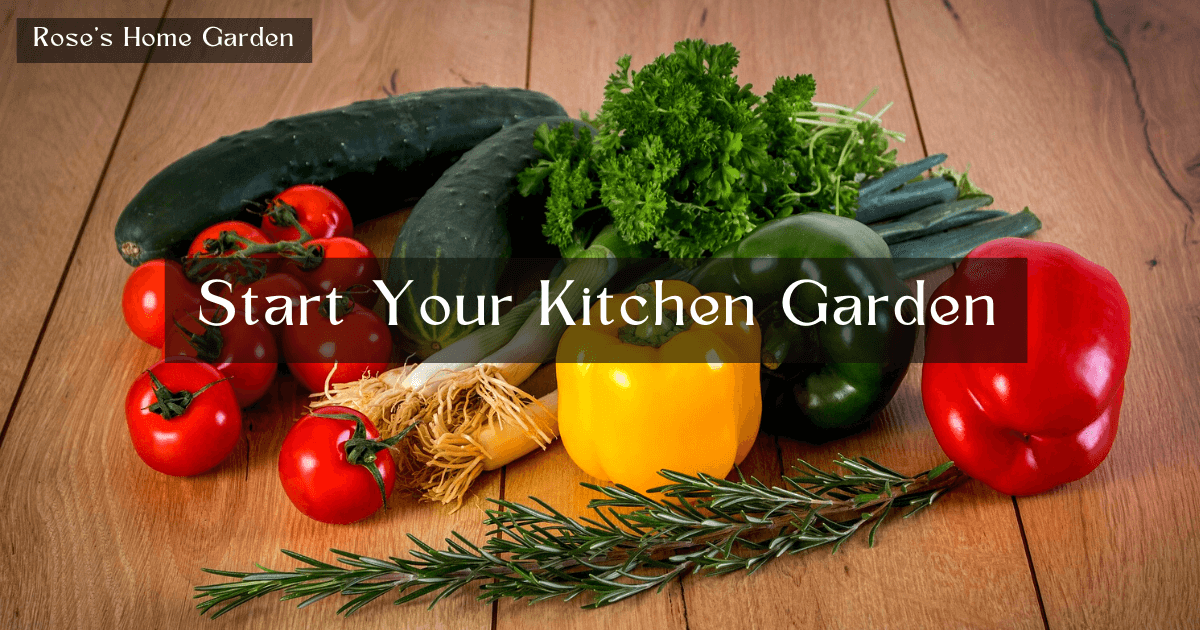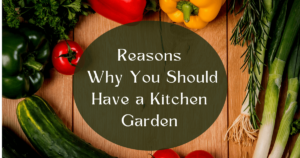
What’s a Kitchen Garden? Why is a Kitchen Garden Important? 7 Reasons
What’s a Kitchen Garden?
A kitchen garden also called a potager takes place in your kitchen or right outside your back door to grow some vegetables, herbs, or common fruits. This type of gardening can involve re-growing vegetables or herbs from food scraps.
A kitchen garden looks highly ornamental on your windowsill or backyard, featuring colorful plants and fruits. It’s usually very simple, with just a few containers to grow some fresh veggies for serving in everyday meals.
Why is a kitchen garden important?
The picture that comes to mind when you think of a garden is likely to include rows and rows of corn, many tomato plants, and probably a lot of hard work. But it should not be in the case of a kitchen garden!
With a kitchen garden (potager), you can easily grow and preserve some of your own greens, herbs, and vegetables while only spending a few minutes or hours every day. A kitchen garden can be defined as a small-scale version of a vegetable garden.

Some Reasons Why You Should Have a Kitchen Garden
- Get detoxifying and healing herbs in your daily diet
- This small garden will make your space filled with fresh air
- Working in the garden will make your body and mind healthier
- You can re-grow your food scraps and compost the waste
- It’s cheaper to start and easy to maintain
- Access to fresh and healthy vegetables
- Gives you a feeling of contentment when you harvest
How to Start a Kitchen Garden?
Before starting your kitchen garden you must keep some points in mind. Your garden location, size, weather, caring, and purpose matter the most. We are elaborating on some of these steps so that you can get a clear idea.
- Your Garden Location: It is great to have a kitchen garden in an area that has plenty of sunlight and a partially shaded area for those herbs and vegetables that like shade. You also need good-quality soil to grow your plants.
- Start Small and Simple: Don’t make it complicated. You should start with some easy-to-grow herbs and vegetables like mint, parsley, lettuce, peppers, and tomatoes. More plants will be suggested later in this blog.
- Raised Beds Gardening: You should grow herbs and vegetables in raised beds as it has many benefits. This technique improves productivity and makes planting and caring easier for you.
- Use Transplants, Don’t Sow Seeds Directly: It is much easier to give seeds a good start by sowing them in trays or pots to keep them safe from struggles with the soil. The mature seedlings can be transplanted for a good result.
- Choose the Best Container: Choosing a good pot or container for your plant is important. I would suggest you do some research about the plant and then choose a pot that is both decorative and perfect for the plant.
What to Grow in a Kitchen Garden?
You must be careful about selecting plants for your vegetable garden as there are many plants that will not grow well without a perfect environment and special care. And also remember that your kitchen garden should have different types of herbs and vegetables rather than one or two in a large number so that you are always able to harvest something to add to your meal immediately. You can easily grow herbs, fruits, vegetables, and flowers including mint, coriander, oregano, chives, thyme, tomatoes, kale, lettuce, peppers, zinnia, moss ross, marigold, etc.
Conclusion
In conclusion, a kitchen garden is a small, sustainable garden that is grown and maintained for the purpose of providing fresh fruits, vegetables, and herbs for household consumption. These gardens offer numerous benefits, including access to fresh and healthy produce, the ability to save money on groceries, and a reduction in one’s carbon footprint.
Additionally, kitchen gardens can be a fun and rewarding hobby for gardeners of all skill levels. They provide an opportunity to learn about the growing process, experiment with different varieties of fruits and vegetables, and even share the harvest with friends and family.
By growing your own produce, you not only gain control over the quality of your food but also contribute to a healthier and more sustainable lifestyle for yourself and the planet. So, whether you have a small balcony or a large backyard, why not consider starting your own kitchen garden today?
To read another blog, click here


